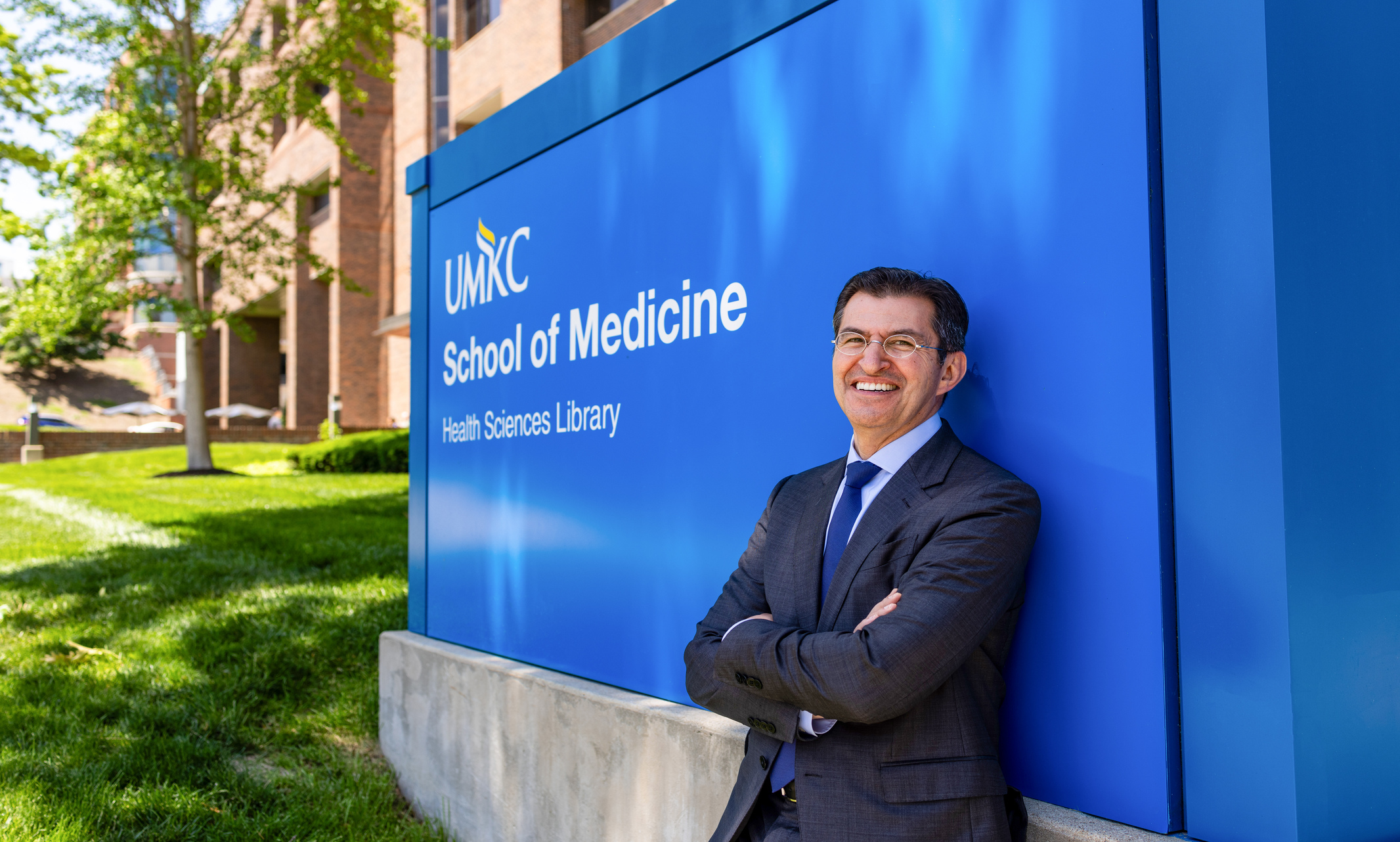Alexander Norbash (B.A./M.D. '86) has returned to his alma mater as the dean of the School of Medicine.
Previously, he served as the chair and professor of radiology at the University of California San Diego School of Medicine, where he continued to hone his extensive background in research and health-care collaboration.
Norbash joins the school at a pivotal time, with a $120 million Healthcare Delivery and Innovation Building breaking ground later this year and a new $14.5 million medical education building under construction on the St. Joseph, Missouri, campus. He joined the school as dean in March.
What inspired your career in medicine?
My father was a surgeon and the town physician in Platte City, Missouri, for many years. His practice was actually a family business. My mother was the office manager. My little brother and I did odd jobs and filing. This was many years ago before electronic medical records. We saw the patients enter the office with numerous ailments and symptoms, many clearly worried, some visibly with discomfort or pain and others with some level of reluctance. Inevitably, many — if not most — left with a sense of relief and gratitude. This left an impression on us that the work was serious and meaningful. Being a physician’s son also means I heard about the frustrations and limitations of health-care delivery, so I felt that I had a balanced impression of the career. In the end, any frustrations or limitation of the career were offset by the gratitude the practitioner felt for the privilege of alleviating pain and suffering in a fellow human being. Later, when it came time to decide on colleges and a career, the final choice was clear.
Talk about a fond UMKC School of Medicine memory.
My classmates were remarkable. They were brilliant and gifted and energetic, always testing the limits of what we could or should do. For a period of time, we believed that our teachers and professors knew us by the moniker, “that terrible class.” We were always testing the limits of rules, rather than following them. Which I suppose is what you expect with individuals who are adventurous, creative, innovative and want to do things “better.” The respective rules might just go out the window in certain instances.
When I was a student, the units were all alive and buzzing with activity. Students were everywhere, and you could hear laughter and happy conversations in all the halls. We had a full-sized pool table on the fifth floor, and on any given evening, six or seven of us would congregate around the pool table watching our classmates winning and losing. (We) talked about politics, religion, what we were doing and planned on doing and all that lay ahead of us in that long and barely visible road we called the future.
What are your goals for the School of Medicine as dean?
I want to have the best and happiest medical school possible. I want the students to be exceptionally kind, brilliant clinicians, completely satisfied and pleasantly surprised by their experience. I want the faculty and staff to be fulfilled and contributing to a community of innovation and experimentation. I want the community – including Kansas City and our adjoining states – to appreciate this amazing gem for what it is, and what it will become.
You are well-versed in the importance of medicine in rural communities, which is the focus of our St. Joseph campus. What is your vision for that program as it grows?
I had a remarkable rural medicine elective experience in Cassville, Missouri, many, many moons ago. I was struck by the strong independence of my preceptor, who was absolutely on his own for all sorts of maladies and issues presented on a daily basis. Our rural practitioners are not only remarkable physicians, but they are also trusted resources, neighbors and sage advisors. We will do everything possible to ensure our rural practitioners preserve the principles of kindness and sensitivity they are known for, while helping them innovate with advances such as population science, preventive medicine and wearable technology to ensure that rural populations benefit from the innovations that are constantly being utilized and implemented in technology-rich urban settings.
What is something about you that may surprise people?
Before choosing medicine as a career, I considered commercial aviation. To that end, my hobby for the past 33 years has been flying, and for the past 30 years it has been flying helicopters. If for some reason I weren’t a physician, my alternative career choice would have been a coast guard helicopter pilot.

